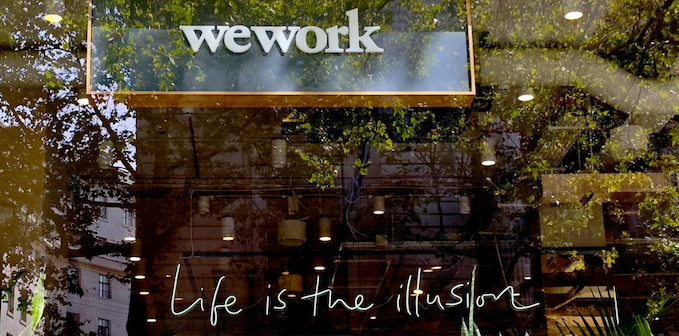Why hunger is necessary for innovation: How Parkinson’s Law hinders…
Staying “hungry” is a critical mindset for founders. But what is ‘hunger’ and why is it important? It’s not necessarily a craving to be innovative or a desire to push forward. As paradoxically as it sounds, for early-stage startups, having limited resources can actually be their most important advantage.
The pitfalls of mentorship and “Smart Money” in startups
Leaning too heavily on a mentor’s guidance can foster unhealthy dependency, impede necessary pivots, and stifle innovation, writes serial entrepreneur Michael Burtov. What are the red flags?
Driving disruption: Amazon’s expansion into car sales and what startups…
Amazon’s new partnership with Hyundai represents a seismic shift for the auto industry. Can brand extensions be a growth strategy for diverse startup founders with their limited resources?
Surviving the 2024 AI Hype Cycle 3 Strategies
Startups that are now jumping into the AI gold rush will most likely fall victim to the hype and eventually crash, believes the lifelong entrepreneur and mentor Michael Burtov. As we head into 2024, what can founders learn from the tech bubbles of the past in order to survive…
SAFE for VCs, not so safe for startups
In recent years, “SAFE” notes have become one of the most common ways for early-stage startups to raise capital in the U.S. Still, most international founders have never heard of them. Lifelong entrepreneur and innovation consultant Michael Burtov explains the challenges these notes present to startups and angel investors.
Lessons from WeWork: When real estate pretends to be a…
The recent bankruptcy filing of WeWork, the shared office space company once valued at $47 billion, offers a sobering lesson for startup founders tempted by packaging traditional business models as earth-shattering ideas.
The startup scamming pandemic: How not to get screwed as…
From fake investors and obscure media to false mentorship and compliance threats — the list of scams that startup founders face in the U.S. is endless. Lifelong entrepreneur Michael Burtov explains how to navigate the dark waters of the scamming pandemic and steer clear of traps.
Using Middle-out innovation strategy, Steve Jobs and Jeff Bezos became…
Rather than trying to break into their target markets with limited resources, immigrant founders can “build bridges” — create platforms, communities, and shared tools. According to lifelong entrepreneur and mentor Michael Burtov, this “middle-out” approach empowers broader innovation. That’s what Steve Jobs and Jeff Bezos did, turning obstacles into…
News flash: Your startup’s investor pool just got way bigger
U.S. legislators are updating requirements for “accredited investors” — people or organizations that are allowed to invest in startups. The lifelong entrepreneur and consultant Michael Burtov explains how immigrant founders could benefit.
Board of Directors vs Board of Advisors: Startup’s Brain vs…
In essence, a board of advisors is more concerned with a company’s strategic interests, while a board of directors focuses on advancing the interests of shareholders. This distinction seems subtle, but for many companies that originate outside the U.S. startup ecosystem, this can be quite a foreign concept. Lifelong…
The Peacock and the Octopus:How showmanship harms you and your…
While standing out is undeniably crucial in a crowded marketplace, an excessive emphasis on appearance over substance is eroding the foundation of entrepreneurship. The lifelong entrepreneur, mentor, and inventor Michael Burtov explains how “peacocking” might be hurting your venture and the startup ecosystem.
The Arrow Information Paradox: How to sell without giving away…
To explain their technology, many startup founders have to reveal proprietary information. This puts their intellectual property at risk and sometimes leads to a loss in its value. How to manage the delicate balance of pricing your product and sharing information about it?
Are startups overly dependent on Big Tech? A case for…
Startups have always been entwined in a complex web of reliance on tech giants. But this dependence seems to be growing as the global tech industry matures, writes serial entrepreneur Michael Burtov. What risks might immigrant entrepreneurs expect to face in the U.S.?
Why Uber is actually a law firm: How stealth business…
In the highly saturated U.S. market, hidden narratives are shaping the competitive landscape. Many innovative tech companies are not what you think they are. Immigrant founders should learn to rewrite the rules of the game, recommends lifelong entrepreneur and startup consultant Michael Burtov.
Failing is good: Why a high failure rate is a…
In the U.S., about 90% of startups fail, and only 1.5% of tech companies have a successful exit. In a mature startup ecosystem, failure is the expected and necessary outcome. And yet, it’s benefits are seldom ever discussed. Lifelong entrepreneur and consultant Michael Burtov elaborates on the taboo topic…
Innovation in disguise: How “off-label” thinking fuels success
Most people are familiar with “off-label” drug use. Applying the same concept, with its ingenuity and problem-solving capabilities, to innovation could help immigrant entrepreneurs to succeed. But this mindset has potential drawbacks, says serial entrepreneur Michael Burtov.
The second mouse gets the cheese: The myth of “first-mover…
Startups from Asia and Eastern Europe have been borrowing and successfully localizing ideas from their U.S. counterparts for years. In fact, there are advantages to being a “second mover”, says serial entrepreneur Michael Burtov. This strategy can be especially beneficial for startups founded by immigrants.
Do investors steal the ideas you pitch them? Yes, all…
Tales about devious investors conniving to take advantage of aspiring entrepreneurs have been circulating in the tech community for a while. Most founders dismiss such stories as urban legends, but in fact, some VCs do steal ideas from early stage startups in order to boost their own struggling portfolio…
Immigrant entrepreneurs created ChatGPT. Is AI a superior alternative to…
Artificial intelligence (AI) recently entered the long list of epoch-making technological innovations credited to the hard work of immigrant founders. ChatGTP, which was developed by Open AI, a company that was launched by an international team, has been making headlines over the past few months. Mike Burtov, a star…
Is bootstrapping the most destructive American startup fantasy?
Stories of entrepreneurs, coming from humble beginnings and building their businesses from scratch, is an inspiration for many immigrant founders. However, not all of them are real, warns lifelong entrepreneur and mentor Michael Burtov. The ultimate American dream might be just a fantasy for those dreamers coming to the…



















